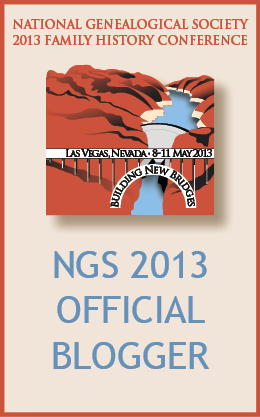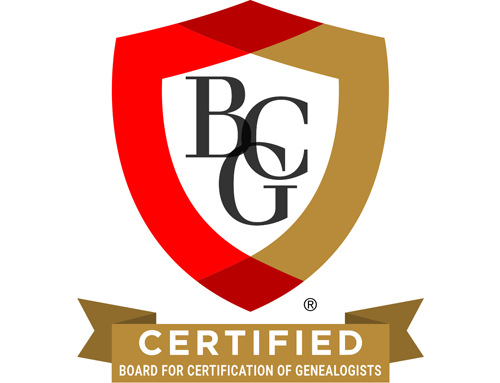Please welcome guest blogger Judy G. Russell, CGSM, CGLSM
If we fail to establish identity and prove relationships, then — says F. Warren Bittner, CG — “all other family history goals and activities are a waste.” And if this critical goal is met, then the genealogist “owes it to herself and future generations to write down the reasoning that led to that conclusion.”
In his presentation “Proof Arguments: How And Why” in the BCG Skillbuilding track, Warren explained that the reasoning that ties people together by identity and relationships is set out in a proof argument, that key written summary of our evidentiary conclusions that allows us to complete the Genealogical Proof Standard.
Reviewing in passing the various formats in which a proof conclusion may be written, he concentrated on how to write a proof argument — the steps that can be used as a model to guide us through to a competent written presentation, and a checklist of questions we need to answer.
The evidence-based conclusion, he warns, must include our analyses and correlations of evidence and our resolutions of conflicting evidence. “These arguments tie life events together and allow us to establish relationships through the evidence, and set out our mental processes as to why we believe the conclusions follow from that evidence,” he explains.
A proof argument can be as short as a single sentence and as long as it needs to be depending on the complexity of the evidence. But without it, we doom future generations to repeat the research again and again.
This session has been taped. During the conference you can buy it from the JAMB-INC booth in the main conference hall. After the conference, it will be available online at http://www.jamb-inc.com/category/genealogy. This is session S421 under the heading 2013 NGS Conference/Las Vegas, NV.
Judy’s website provides the following about her:
A Certified GenealogistSM and Certified Genealogical LecturerSM with a law degree, The Legal Genealogist Judy G. Russell is a lecturer, educator and writer who enjoys helping others understand a wide variety of genealogical issues, including the interplay between genealogy and the law.


